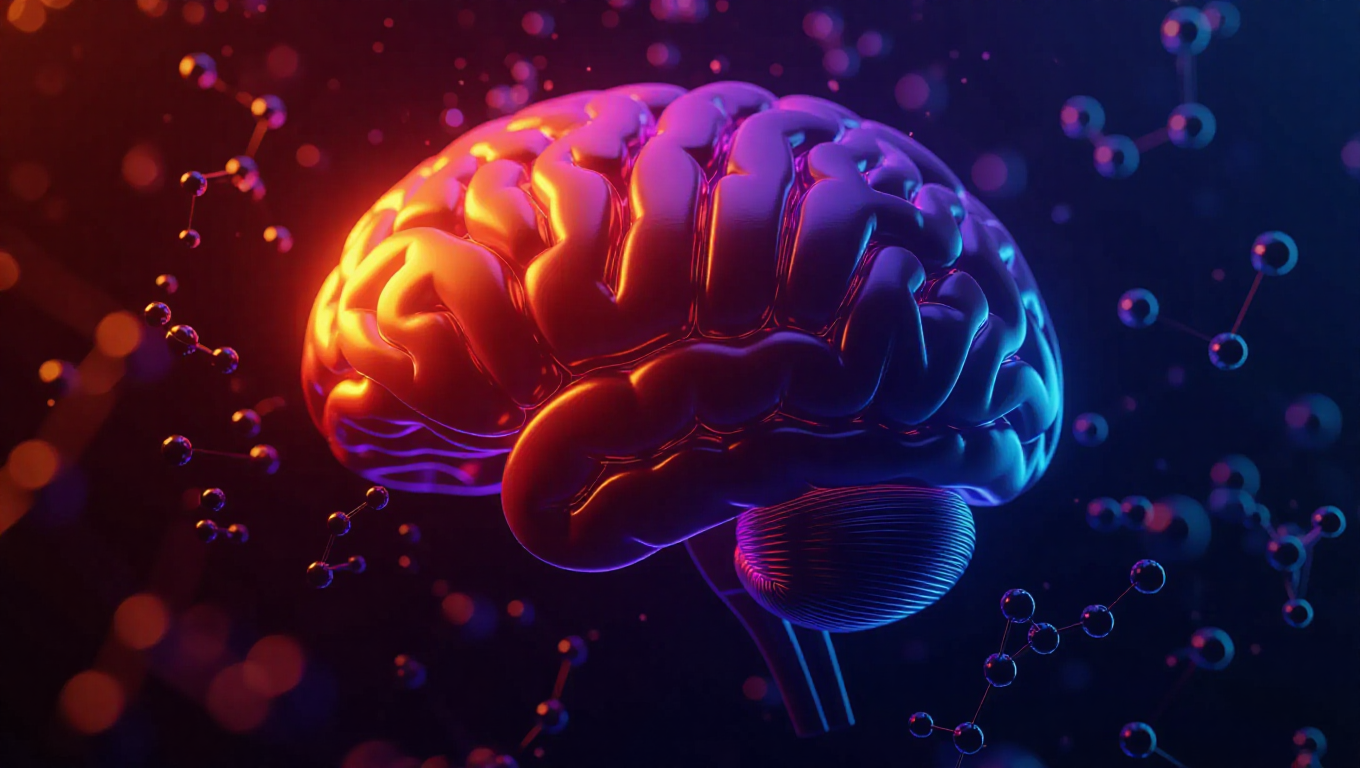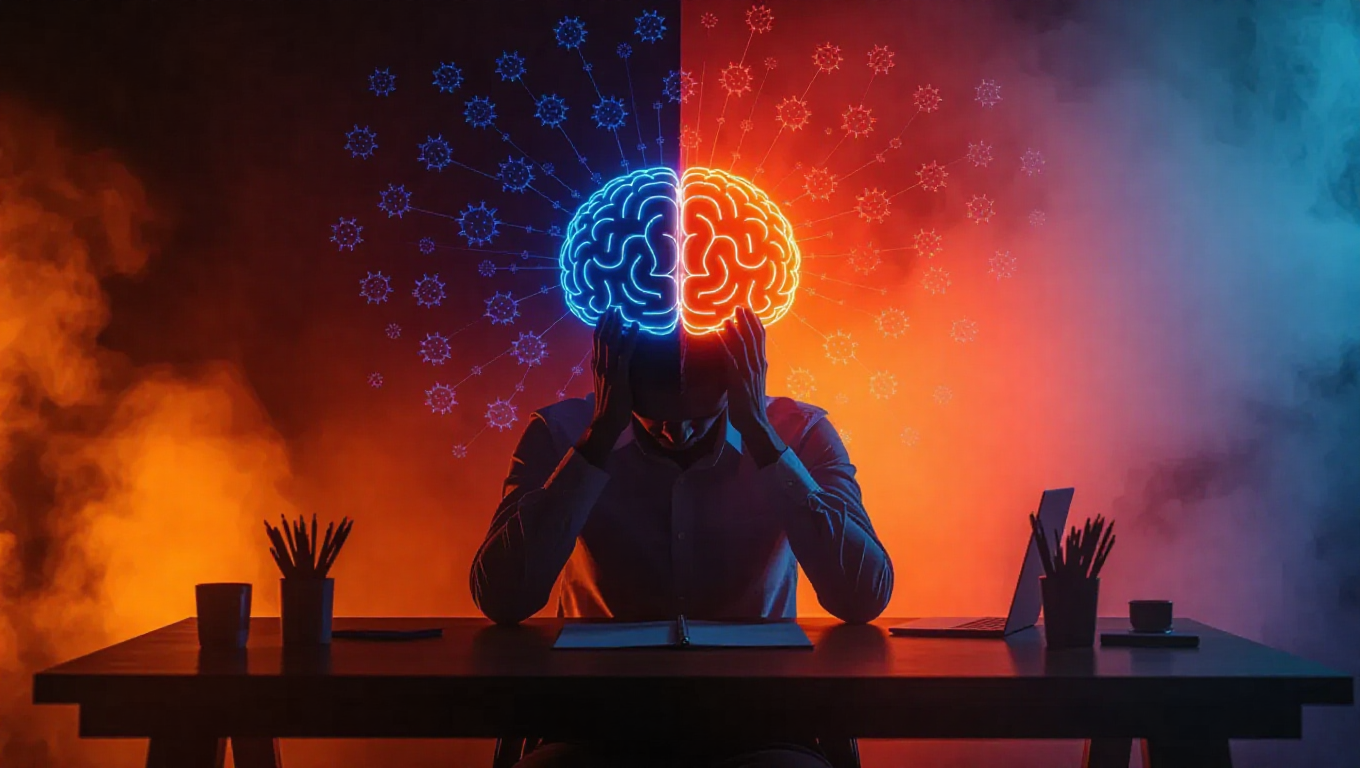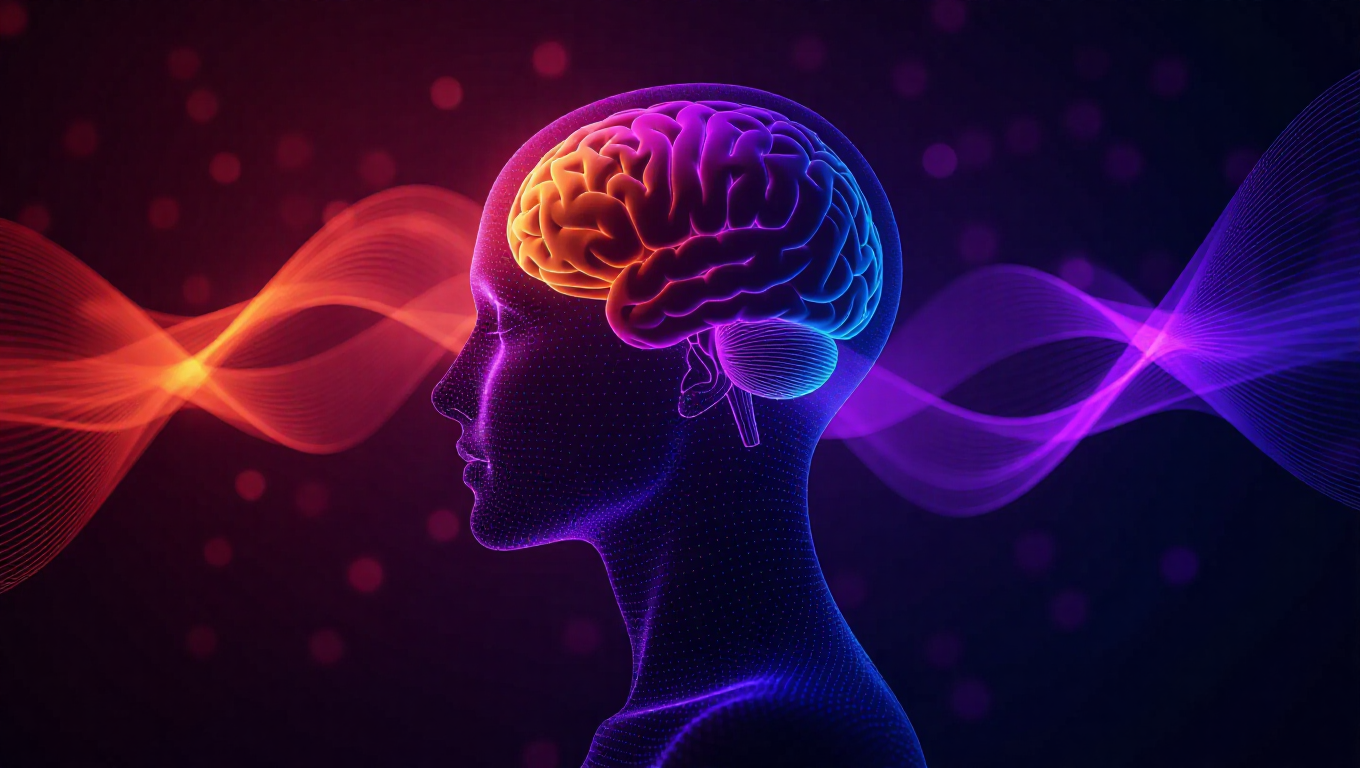Burnout and the Neurotransmitters: How Chronic Stress Scrambles Your Brain Chemistry
Feeling drained, unfocused, and emotionally flat? It might not be “just stress”, your brain chemistry could be changing.
Burnout doesn’t just affect your mood. It disrupts the chemical messengers that keep your brain balanced. These messengers, called neurotransmitters, are the key to how you think, feel, and perform. And when burnout hits, they can go haywire.
In this article, we’ll explore how burnout rewires your brain, one neurotransmitter at a time. By the end, you’ll understand what’s really going on inside your head and what you can do to restore balance.
What Are Neurotransmitters?
Neurotransmitters are like text messages between brain cells. They help neurons (nerve cells) “talk” to each other. This communication controls everything from your mood to your memory to your motivation.
There are two main types of neurotransmitters:
Excitatory: Make your brain more active (like glutamate and dopamine)
Inhibitory: Calm things down (like GABA and serotonin)
When you’re healthy, these chemicals are in balance. But chronic stress and burnout throw off that balance and that’s when trouble begins.
How Burnout Breaks Brain Chemistry
Burnout is more than just feeling tired. It’s a chronic state of emotional, mental, and physical exhaustion, often caused by prolonged stress.
This state of exhaustion causes major shifts in:
Neurotransmitter levels
Receptor sensitivity
Brain region function
Let’s break it down by key neurotransmitters.
1. Dopamine – The “Motivation Molecule”
Normal Role:
Dopamine helps you feel motivated, driven, and rewarded. It fuels your focus, pleasure, and goal-setting.
Under Burnout:
Less dopamine is made
Receptors become less sensitive
Your brain becomes numb to rewards
Symptoms:
Lack of motivation
Feeling “blah” even after fun activities
Increased risk of addictive behaviors
Think about this: When was the last time you felt truly excited about something?
If it’s been a while, your dopamine system might be downregulated.
2. Serotonin – The “Mood Enhancer”
Normal Role:
Serotonin helps regulate your mood, sleep, appetite, and social behavior.
Under Burnout:
Production drops by up to 50%
Fewer receptors in the brain
Breakdown of serotonin happens faster
Symptoms:
Mood swings
Anxiety or sadness
Trouble sleeping
Withdrawal from social situations
Try This: Keep a mood and sleep journal for 7 days. Are your bad moods or poor sleep linked to long work hours or emotional exhaustion?
3. Norepinephrine – The “Fight and Flight” Chemical
Normal Role:
This chemical ramps up your alertness and reaction time, especially in emergencies.
Under Burnout:
Starts off too high (constant stress)
Then crashes (your system gets worn out)
Symptoms:
Feeling “jumpy” or anxious
Trouble focusing or staying calm
Fatigue after prolonged stress
Insight: Ever feel like your nerves are fried? That may be norepinephrine overload followed by depletion.
4. Glutamate – The “Gas Pedal” for Thinking
Normal Role:
Glutamate powers learning, memory, and fast thinking.
Under Burnout:
Too much builds up in your brain
Neurons get overstimulated (aka “excitotoxicity”)
Symptoms:
Brain fog
Mental fatigue
Trouble concentrating
Real-Life Example: After back-to-back Zoom calls, you feel foggy and overwhelmed. That’s likely a glutamate spike.
5. GABA – The “Brake Pedal” of the Brain
Normal Role:
GABA slows things down. It’s what helps you relax and fall asleep.
Under Burnout:
Less GABA is made
Receptors don’t work well
Symptoms:
Racing thoughts
Insomnia
Tension or restlessness
Try This: Use deep breathing before bed. It naturally raises GABA activity.
6. Melatonin – The “Sleep Timer”
Normal Role:
Melatonin helps regulate your circadian rhythm, also known as your internal clock.
Under Burnout:
Less is produced at night
Sleep cycles get disrupted
Symptoms:
Trouble falling asleep
Waking up in the middle of the night
Daytime fatigue
Quick Fix: Limit screen time an hour before bed. Blue light suppresses melatonin production.
7. Endorphins – The “Natural Painkillers”
Normal Role:
Endorphins relieve pain and boost happiness. They’re released when you exercise or laugh.
Under Burnout:
Endorphin levels drop
Brain struggles to feel pleasure
Symptoms:
Physical aches and pains
Low mood
Lack of joy from activities you once loved
Pro Tip: Go for a brisk 20-minute walk to jumpstart endorphin release.
8. Histamine – The Hidden Irritant
Normal Role:
Histamine helps regulate wakefulness, appetite, and immune response.
Under Burnout:
Levels stay too high
Causes inflammation in the brain and body
Symptoms:
Brain fog
Irritability
Worsening allergies or skin issues
Watch Out: If burnout is making you more sensitive to foods or smells, histamine might be to blame.
9. Orexin – The “Arousal Regulator”
Normal Role:
Orexin keeps you awake and alert, and also increases your appetite.
Under Burnout:
Orexin becomes overactive (causing insomnia)
Symptoms:
Fragmented sleep
Emotional ups and downs
Trouble staying awake during the day
Overeating
10. Oxytocin – The “Connection Hormone”
Normal Role:
Oxytocin is often called the “love hormone” or “bonding molecule.” It plays a big role in emotional bonding, trust, empathy, and reducing stress.
Under Burnout:
· Less oxytocin is produced, especially in brain regions like the hypothalamus
· Effect is more pronounced in women
Symptoms:
Feeling disconnected or emotionally flat
Withdrawing from relationships
Feeling numb even in supportive environments
Increased anxiety or irritability
Quick Fix: Hug someone, laugh with a friend, play with your pet, or feel cared for to bump up oxytocin.
Why This Matters
When all these systems go off balance at once, it creates a perfect storm:
You can’t focus (dopamine, glutamate)
You can’t rest (melatonin, GABA)
You can’t feel joy or love (endorphins, serotonin, oxytocin)
You feel emotionally unstable (dopamine, serotonin, histamine, norepinephrine)
Fix Brainwaves - Fix Neurotransmitters
Burnout recovery doesn’t happen overnight, but you can start today:
Simple Actions to Support Neurotransmitter Health
Sleep 7–9 hours (melatonin, GABA)
Exercise regularly (dopamine, endorphins)
Eat balanced meals (precursors like tryptophan and tyrosine are essential to synthesize several neurotransmitters)
Practice mindfulness or meditation (serotonin, GABA)
Use evidence-based relaxation tools like MelodiaSync
(Scientifically designed to “reboot “ your brain and help reset your stress response)
Disclaimer: This blog post is intended for informational purposes only and does not constitute medical advice. Please consult a qualified healthcare professional for any medical concerns or treatment decisions.




